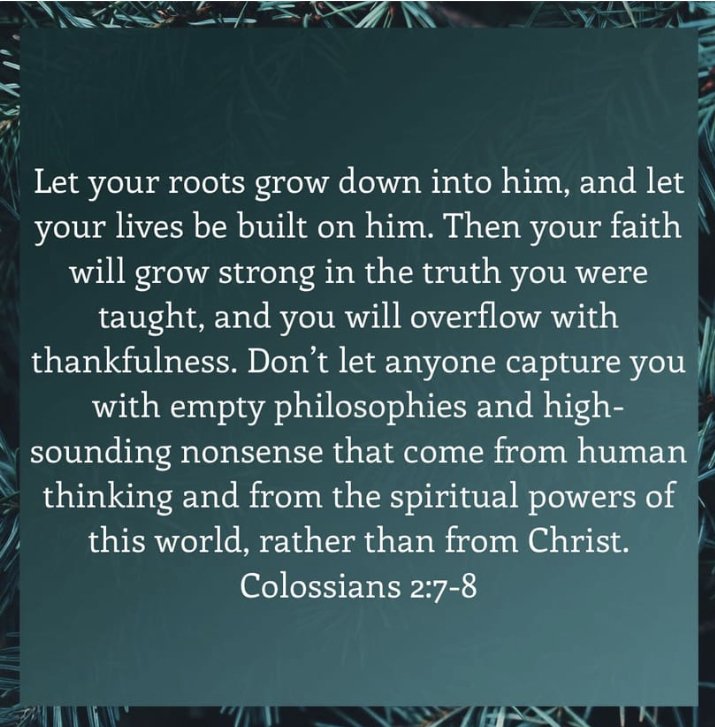Beloved, although I was very eager to write to you about our common salvation, I found it necessary to write appealing to you to contend for the faith that was once for all delivered to the saints. For certain people have crept in unnoticed who long ago were designated for this condemnation, ungodly people, who pervert the grace of our God into sensuality and deny our only Master and Lord, Jesus Christ. Jude 3-4
These are hidden reefs at your love feasts, as they feast with you without fear, shepherds feeding themselves; waterless clouds, swept along by winds; fruitless trees in late autumn, twice dead, uprooted; wild waves of the sea, casting up the foam of their own shame; wandering stars, for whom the gloom of utter darkness has been reserved forever. Jude 12-13 (ESV)
Hidden reefs, waterless clouds, fruitless trees, wandering stars—these descriptions reference false teachers. Their heresy threatened the churches. Jude used imagery to help readers visualize the hazard. Because clouds captivate me, I focused on waterless clouds and thirsted for more.
While examining the letter of Jude in Scripture, I discovered Jude’s initial desire to write an inspirational letter to Jewish Christian churches about the common salvation of believers in Jesus Christ. Instead he changed course and confronted the threat of false teaching within those same churches by encouraging his readers to grow in their knowledge of Christian truth. Fast forward to today and his words still ring true.
Along with several other New Testament writers, Jude addressed this heresy because it impacted the faith of believers. Followers of Jesus then and now must contend for the faith and resist false doctrine. Rather than conforming to this world, God appeals to His church to be transformed by the renewing of our minds in Christ Jesus (Romans 12:1-2).
God’s Word even compels church leaders to live a higher standard (Titus 1:5-9). They are to follow Jesus’ example, demonstrating to church members how to live holy lives that please a holy God (Philippians 3:17-19). Yet some leaders who appear godly actually please themselves instead of pleasing God (1 Timothy 3:1-6). They practice immorality as Jude, Peter, and Paul describe in their letters to fellow believers. When leaders fall short, many of their followers do as well.
Jude understood the deception behind false teaching and how it could lead people astray. In his epistle, he figuratively waves red flags of warning. Don’t be deceived by calm waters as hidden reefs or rock barriers could be present, creating danger to ships. Harvest time won’t produce fruit when trees are barren. The brief appearance of a wandering or shooting star provides little light. The lack of rain from waterless clouds hinders growth. Jude knew his readers needed the gift of living water from the Lord Jesus Christ (John 4:7-15) who is the Way, the Truth, and the Life (John 14:6).
In Jude’s day, the area teemed with thirsty souls as untrue teaching prevailed. The same is true today. People wander aimlessly in search of truth while being misled by waterless clouds, those false teachers who cultivate spiritually impoverished churchgoers. The Old Testament prophet Jeremiah describes this age-old situation:
…for my people have committed two evils:
they have forsaken me,
the fountain of living waters,
and hewed out cisterns for themselves,
broken cisterns that can hold no water. Jeremiah 2:13 (ESV)
When a pastor and his congregants embrace the things of this world, seeking after society’s affirmation instead of adhering to God’s commands, they wander from God’s truth. They sympathize with a sinful culture and attempt to appease rather than speak truth in love. Addressing these issues, pastor, author, and professor Dr. Voddie T. Baucham, Jr. bluntly states, “You shave off the edges of the gospel to be liked by others.”
Attempting to make the gospel of Jesus Christ fit the standards of society pollutes the truth of God’s holy Word. The church then drifts with culture’s changing beliefs instead of firmly standing on the unchanging Word of God. “It’s the Word that creates the church, not the church that creates the Word,” said W. Robert Godfrey, chairman of Ligonier Ministries.
Most people understand right and wrong, but the deceit of false teaching lies within its subtlety. A pleasant-sounding truth can be misleading. As Charles Spurgeon said, “Discernment is not knowing the difference between right and wrong. It is knowing the difference between right and almost right.”
“Discernment is not knowing the difference between right and wrong. It is knowing the difference between right and almost right.”
So how does one know the difference between right and almost right? By focusing on truth, God’s Truth. Those who are trained to recognize counterfeit money study only genuine currency. Those who distinguish truth from fallacy study and believe the authoritative Word of God.
In order to discern false teaching, Jude instructed his readers to grow in the knowledge of Christian truth through the trustworthy beliefs given by God to the church through the apostles. In other words, we must contend for the faith that was once delivered to those who would believe the word of our Savior Jesus Christ.
Therefore, as in Biblical times, heed the words of Jude. Increase your knowledge of Christian truth. Study daily the Word of God, rightly handling those words of truth, in order to show yourself approved (2 Timothy 2:15). Hold tight to the teachings of Jesus and contend for the faith. And God will keep you from stumbling as you stand firm on His inerrant Word.
…for everyone who lives on milk is unskilled in the word of righteousness, since he is a child. But solid food is for the mature, for those who have their powers of discernment trained by constant practice to distinguish good from evil. Hebrews 5:13-14 (ESV)





